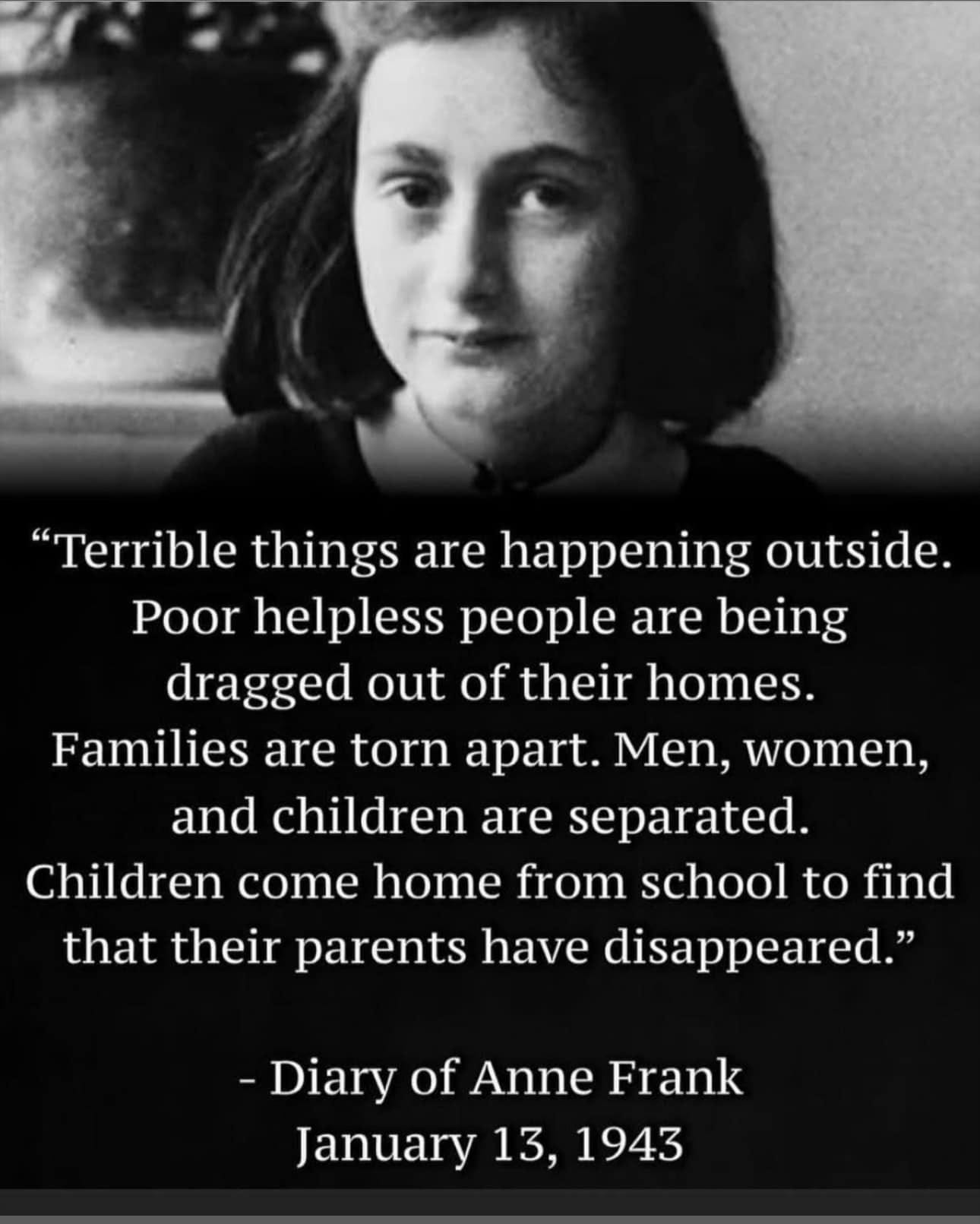WHAT WE HAVE LEARNED FROM HISTORY
IS THAT WE DO NOT LEARN FROM HISTORY
The grandparents of the protagonist of the novel I’m writing were survivors of the Shoah – although Brooke’s grandmother is technically also a survivor of it and the Samudaripen, which is one of many terms the Roma people call the same time, as she herself is Romani, although the man she marries after the liberation is Jewish. More about this, below.
I have spent much time this year reading about the Roma camps, especially the “Gypsy family camp” (German: Zigeunerfamilienlager) was Section B-IIe of the Auschwitz II-Birkenau concentration camp, where Romani families deported to the camp were held together, instead of being separated as was typical at Auschwitz. (Text from the Wikipedia article, and yes, I’m very much aware that the word is a slur among many of the Roma. Although it’s in my distant ancestry, I also have both Ashkenazi and Roma ancestry myself - Jewish from my mother’s family and Roma from my father’s and I was not raised in either culture; everything I know about either, I have learned on my own, for better or worse.)
Research takes you down many a strange rabbit warren, and this one been no exception. I read The Diary of Anne Frank many decades ago, and was horrified by the casual brutality expressed even in the 1960s sanitized version.
I didn’t know about the United States own concentration camps, until after the 1976 TV adaptation of “Farewell to Manzanar”, which was all the more disturbing for the fact that it was two hours away from where my family lived when I was in High School, and I had never heard of the place.
I *thought* I had a reasonably good understanding of the horrors of what had happened.
I knew nothing, comparatively.
As an adult, reading historical accounts of those entering the camps, the witnessing the survivors … Edward R. Murrow reported on entering Buchenwald “There surged around me an evil-smelling stink. Men and boys reached out to touch me. They were in rags and the remnants of uniforms. Death had already had marked many of them, but they were smiling with their eyes. I looked out over that mass of men to the green fields beyond, where well-fed Germans were ploughing. A German, Fritz Kersheimer, came up and said, ‘May I show you around the camp? I’ve been here for ten years. …” has been a harrowing learning experience.
And today? Today, our government just ships them off to other countries to deal with?
Back to those “grandprents” that I mentioned above; they are the main characters in a trilogy of stories that I’ve been writng since April 2025. The collected stories of Unseen, Unbroken, and Unbound are tales that I had never planned on writing.
The characters of Józef Schwartz and Anastazj\ia Holomek were created as the grandparents of Brooke Morningstar in 2022 when my writing partner and I were plotting out our collaboration, Good Bones. At that time, all that was known about them was that he was Ashkenazi, she was Roma, and they were survivors of the Camps. They had been “thrown together during the liberation and somehow fell in love.” They later had a daughter, who was Brooke’s mother, Miri. That was it.
At the time, that had been all that was necessary.
Around the time that President Trump began his aggressive deportation activities and employed the Alien Enemies Act to justify his own version of judenrein, they began telling me their story.
In order to tell their story properly, though, I had to learn more about the extermination camps, and what survival was like there. I’ve spent many hours going through the online archives of Lety near Písek (for Bohemia), Auschwitz-Birkenau, Dachau, the Death Marches, and immersing myself in the recorded histories of those who survived – and the stories left behind of those who did not. Those are the heroes, the ones whose stories we know.
There are countless others, whose stories we will never know, whose names were erased, replaced by numbers and then destroyed by fire, or simply left where they fell.
I cannot count the number of times my family has asked if I am okay as tears run down my face as I read - and write. The answer is always “No, but I will get through this.
I see far too many parallels between then and today. George Santayana wrote “Those who cannot remember the past are condemned to repeat it”[i] Unfortunately, it seems all too often that, to paraphrase George Hegel, “What we learn from history is that we never learn from history.”[ii]
(Note: an earlier version of this was posted to my blog at AshleighWritesBooks. It has been lightly edited and revised for Substack. 12 October 2025.)
[i] Santayana, George (1905) Reason in Common Sense, p. 284, volume 1 of The Life of Reason.
[ii] “Rulers, Statesmen, Nations, are wont to be emphatically commended to the teaching which experience offers in history. But what experience and history teach is this – that peoples and governments never have learned anything from history, or acted on principles deduced from it. Each period is involved in such peculiar circumstances, exhibits a condition of things so strictly idiosyncratic, that its conduct must be regulated by considerations connected with itself, and itself alone. Amid the pressure of great events, a general principle gives no help. It is useless to revert to similar circumstances in the Past.” Hegel, The Philosophy of History, trans. J. Sibree, Batoche Books, 1900, p. 19. Online at: https://www.marxists.org/reference/archive/hegel/works/hi/lectures.htm

